| A couple of years ago I went deer hunting with my best friend. If you've never been hunting, I promise you it's nothing like you imagine. Hunting seems like a fairly sedentary activity, and in truth a good portion of it involves keeping your muscles from freezing or cramping. Still, I trained for this excursion like I was entering an Ironman competition! First, strategic layering. You have to be in the woods before the deer wake up. Let me reiterate: before the deer wake up. It's still night, and temperatures hover around freezing. By the time the deer bed down (between 11am and 2pm), temps may have risen into the 60s. (Welcome to Kentucky, where the weather swings like the moods of a teenage girl.) I wore one pair of boots, two pairs of socks, two pairs of pants, a tank top, t-shirt, thermal shirt, jacket, hoodie, fleece vest, heavy coat, two pairs of gloves, and a hat. All of this had to be washed, aired, and de-scented. You must carry everything you need into and out of the woods. In the dark. With frost on the ground. Silently. When I say everything, I mean everything - even a jar to pee in. First aid, food, hand/foot warmers, seat, ammo, knife, drag rope, flashlight, tags, calls, cover scent, water. All that weight on your back across uneven terrain. Oh, did I mention you're also carrying a loaded rifle that weighs up to 12 lbs.? It takes more than careful aim to be a successful hunter. You have to be able to shoulder and balance your gun (silently) for hours on end. I exercised with my rifle for about a month beforehand; I practiced balancing it while sitting, kneeling, crouching, lying down, standing. I took shots at the range in all those positions. It does not take long for 7lbs to feel like 70. While at the range we also "sighted in". One's accuracy can be affected by air and barrel temperature, wind speed and direction, and the physical sights of the gun. The deer don't stand there and wait to be shot. You get one trigger pull, maybe two. The first shot is your only shot. Consequently, a hunter tunes his/her gun to be accurate within half an inch with a cold barrel prior to taking it into the woods. This is called "sighting in". I had to learn how to breathe. Hunters are susceptible to "buck fever", a state of excitement in which they breathe rapidly; this throws off their shot. A good hunter takes his/her shot between heartbeats, which requires both the awareness and control of one's breath. When Opening Day came I was packed and ready. I woke up in the barn at 4am and traversed the hill to my appointed spot. I was in place, set up, and quiet well before daybreak. You don't notice dawn anywhere like you do in the woods. Other places it creeps over you, its gray fingers lifting the blanket of night gradually. In the woods, daybreak seems as abrupt as someone turning on the light at the end of the hallway. Perhaps because you've been sitting still since you could see the bone white moon full against its blue-black curtain, that first sliver of dawn is like a terrestrial blaze. First light comes from the earth, you see it under the fog that covers the meadow before you. This is why hunters go out in the woods: to reconnect with the truth of life unencumbered. In the woods a man can sit silently with his thoughts and appreciate the beauty of nature. There's no judgment sitting with your back against a tree and the imprint of an acorn in your numb buttocks. At first light, you're ready and eager to see a deer. You're hyper-aware of every noise, change in wind direction, or slight movement through your scope. The sun rises; a flock of wild turkeys breakfasts within view and you wish you had your shotgun. The hours drag on and you lose focus. For us it was a brash gray squirrel who foraged ever closer to the blind. I started throwing him nuts from my trail mix. I didn't get a deer, but the training and experience has proved valuable time and again. | School is a lot like hunting. I was quickly disabused of my preconceptions; I took on too much last year and I panicked. I let my baggage get in the way of my success. I was not layered appropriately. Over the summer, I took classes and kept to a self-imposed practice regime. When the dawn broke over fall semester, I was in place and focused. There's a line from a song: "you were always waiting for your moment to begin". Leonard Bernstein said there's always one right moment to begin a piece. How do you know when your moment comes along? Are you really supposed to sit and wait? No. And yes. I have been bound in a funhouse of dichotomies. I'm afraid to fail and let people down, but I'm afraid to succeed because what if I can't live up to that again? I'm afraid to express myself and be judged for what's inside me, but I feel strangled from holding back. I push myself, but I don't trust my own judgment. Yet I have moments of existential daybreak, when I see very clearly who I'm meant to be. If I ever took hold of the power within me, I would be a formidable presence in this world. I want to be that thing. I'm still training. It's one day at a time, one assignment, one page of music, one performance. I have to learn how to breathe. I'm building the strength to carry myself. My moment is coming. It takes more than wanting and planning. You can't sit back and say, "Man, if only I had x I would do y." It's that constant focus and active waiting, by which I mean giving your all to the little things every day for as long as it takes so that when your moment comes you are prepared to take your shot. My piano professor has attained legendary status over the years. Everyone speaks her name in reverent awe and no one dares incur her wrath. Last year I compared turning pages for her to standing next to a lion who has just taken down a gazelle. It's a terrifying place to be and you don't want to make any sudden moves. In so many ways I want to be like her. One of the things I admire most about her is her style of leadership. I am also impressed with her integrity. She's absolutely true to who she is. She's an incredibly powerful performer, and while I experience that same passion and energy, it's not in my own playing. As much as I want to emulate her, I do not want to be a lion. I'm going to be a honey badger. Honey badgers know no fear. A lone honey badger can drive off a pack of hyenas or a pride of lions. They're known for sleeping off bites from venomous snakes. One badger survived over 300 bee stings. Honey badgers are not what they seem; they're actually members of the weasel family. They are intelligent, tenacious, agile, able to use simple tools, passionate, nurturing, territorial, and they do not forget. Little powerhouses of the savannah, honey badgers will risk everything to seize an opportunity, and should they meet with failure they shake it off and try again. Last week had me on the ropes, but I didn't quit. Quitting is not an option when you are focused on your goal. I'm going to do for women in conducting what Bernstein did for Americans. I could use some help getting there. My piano is inadequate. If you know of someone with a small grand who is willing to work out a deal, trade for a console piano, or donate for a tax write-off?, please let me know. If you're interested in helping in a tangible way, I have a gofundme website: http://www.gofundme.com/MadelineNorman . I also love food, as long as it's not venomous snakes or bees. ;-) Finally, I need your ongoing love and support. The web of people holding me through this experience humbles and amazes me. I am so grateful to each and every one of you. THANK YOU for helping me see the daylight. THANK YOU for helping me be a better me. THANK YOU for not letting me give up, and for standing guard while I sleep the tough days off. THANK YOU for helping me stay true to myself. |
|
1 Comment
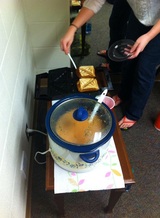 I think anyone who participates in care giving or healing aspires to be a Cheater of Death. We rescue, we treat, we nurse, we ease pain - sometimes we cause a little more in the process of curing. We seek to extend life. It's a dirty, exhausting, heart-wrenching quest, and when we fail (because no amount of love and hard work can result in immortality) we take it to heart. Champagne is the latest in a string of loved ones I've lost to cancers. It doesn't matter what label you slap on it, they all work the same way. There's fever as the body tries to fight off the invasion. This is often coupled by some physical irregularity and a sense of unease. As the cancer usurps healthy cells and converts them to its nefarious purpose, the immune system pulls out all the stops. Metabolism increases, cell counts fluctuate - a war is waged. Yet all available resources go to the marauder, not the home team. In the end they lose their appetite and all but starve to death. I speculate that the signal to stop eating is a last ditch effort on the part of the healthy cells to maintain their integrity. It shouldn't have to come to that. Death is a foreign land; no one who is alive truly knows its topography. Laden with knowledge of the body and its functions as well as anecdotal evidence, I struggle to come to grips with the transition that awaits us all. How do we know it doesn't hurt to die? How can I console someone I love that they're going to a better place when I haven't the faintest idea what that trip is actually like? I told Champagne she was going where we all go, and that I hoped it would be everything she needed. In 2007 I read an article in Men's Health that described a man being revived an hour and a half after flat lining. How do we know when someone is actually dead? How long does one float over one's body, hoping to be resuscitated, before finally moving on? Is that what ghosts are - people who don't want to go? I have seen something missing after the moment of demise, witnessed the soul leaving the glove. Sunday night I wondered if Champagne had reincarnated as the insect that kept flying in my face. Who's to say she wouldn't accept a different form for another chance at life with me? That may sound arrogant; I know I would do the same for her. Our "us"-ness - that part that separates from our corporeal form when it gives up - is what makes loss so difficult. We don't love the body, it's just a representation of the form we loved somebody in. If that makes so much sense, why does it distress me that Champagne's spotted frame has been in the hands of strangers for 77 hours? They cremated her yesterday evening. All I could think was that she didn't belong with them, she needed to come home with me. I could make everything alright. I could blow on her belly, wiggle her ears, give her a marshmallow.... Already I remember her well and happy; I had to guard myself against the temptation to see her still, skinny, ravaged body one last time. Bone, marrow, blood, lungs, lymph nodes, brain - cancer raped it all. The notion that people she would have bitten in life would reduce her to ashes, and I not there to protect her, sickened me. I am a healer, a giver, a Cheater of Death. I grieve for Champagne for all the usual reasons, and I face the additional loss of service. Caring for her became increasingly demanding and time-consuming. I no longer have to wake up an hour early to spoon feed her, spend fifteen minutes coaxing her outside to pee, give pills, clean up, get her settled, etc. The abrupt cessation of manifest love has left me in a thick fog. I would rather feel my way forward through grief than sit with it and risk it closing over me. So I made soup. Soup is love; it's comfort in a cup. I brought homemade tomato and the makings of grilled cheese sandwiches to school. Many of my classmates have supported me through this and other difficulties. I am profoundly grateful for their comfort and acceptance. I thought about taking this week off, but it's too hard to be at home. What was a very selfish act - needing to help others, knowing that I'd be more likely to eat in a group - became a remarkable blessing. Students in the same department who had never met shook hands. Smiles of surprise, delight, and satisfaction lifted faces. The rules were bent about 90 degrees, and nobody seemed to mind. O59, previously a dark storage room, rang with laughter, learning, and music. Sitting on the floor surrounded by friends, I didn't hurt so deeply. I came a little closer to healing through giving. I cheated Death with soup. Tomorrow morning strangers will place the cremains of my little girl in my hands. I will be unprepared for how light and small and unfamiliar she is. I will cry. Then I will give myself over to the embrace of the musical community of which I am part. I will be swept up in accompanying and learning and life. I will practice in a room that will smell of today's tomato basil and grilled cheese, a sensory baptism into my new life. A sober life without Champagne, but no less full of love. 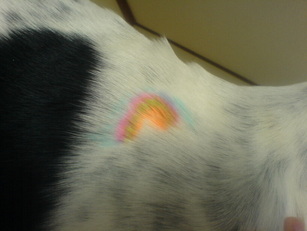 Today is Yom Kippur, the Day of Atonement, the holiest day of the Jewish year. When Kol Nidre service started last night I was lying on my living room floor curled, as much as possible, around my dear companion, my beloved Champagne. She stopped eating yesterday; unbeknownst to me, she spat out her morning pain pill. We didn't have Champagne Friday because it was stormy outside. She lay on the road while I spread grass seed, collected eggs, and fed pumpkins to the sheep. She lay on the bedroom floor and listened to me practice. She helped me put my spinning wheel back together. In the evening, she stood up and stared around her, eyes wide. I lay on the floor and stroked her, head to tail, trying to calm her labored breathing. She stared past me, focused on something only she could see. After a few minutes she grew unsteady and chose to lie down. I thought we might be at the end. Tearfully, I told her that I loved her and she licked me in response. She didn't come to bed last night. This morning I waited a few extra minutes to get up. I listened for her raspy panting, prepared myself, and rose to find her breathing easily and watching me from the floor. I coaxed her outside three steps at a time - call, step, pet, repeat - and she didn't stumble, but she hurried back inside. Then I did something I never do: I made breakfast on Yom Kippur. I made turkey bacon, and biscuits, and eggs, and I sat on the floor tearing them into pieces she could swallow...but she wouldn't eat. I forced her pill down her throat and waited, hoping she'd feel better after it kicked in. Most of the morning she lay with her back to me, taking note of household activity. Even in her weakened state, Zeke considered Champagne too formidable to risk snatching bacon from between her paws. When Ila came over to visit, Champagne barked at her and got up to be petted, but soon lay back down. I sat with her and petted her while we discussed her transitional state. Her gums were pale, her ears were cold, and while she was clearly distancing herself from this plane of existence she was happy to be the center of attention. This afternoon Nick wanted to get a haircut and invited Champagne along. I didn't think she'd be up for it, but when I put her collar on she sprang (insofar as a dying dog can spring) to her feet and headed to the car. We never got the haircut. First, Tucker wouldn't leave Champagne and go inside. Then Nick's battery was dead and wouldn't jump. Then he had to change his shirt. I was organizing things in my car when he said, "Oh crap, Maddie, hurry!" Champagne had jumped into the front seat and it appeared she'd gotten one of her feet stuck between the seat and middle console. When I opened the passenger door, she didn't raise her head. It is a tremendous gift that I was able to recognize her moment and embrace it. I sat on the rocker panel and pulled her into my lap. I stroked her beautiful head with one hand while I felt her heart grow fainter under the other. I cried, but did not sob, did not beg her not to go, and I told her I loved her over and over. In a literal minute her intermittent breaths ceased and her heart stilled. She did not die alone. She went peacefully, in her own time, of her own accord. Would we were all so lucky. Grief, like love, takes myriad forms. Mine affirms that Champagne is my child. In the moments of her death I found tremendous strength, a strength I would not have bet I had. When she passed, I felt the weight of being strong lifted from my shoulders. I'm glad she's gone. She needed to leave, as much as I never wanted her to. I couldn't save her or protect her from cancer and no one could offer her further help. We were both suffering. Afterward I asked for my phone with a mother's pragmatic sense of duty. Our vet was closed; we had to borrow Ila's car and take Champagne to a strange clinic. When she was carefully loaded in the back, Nick offered to hug me. I told him there would be time for that later. At the clinic I filled out paperwork while Nick and the vet tech fetched Champagne. Then, suddenly, I panicked the way I've seen animal mothers do when their babies die or are weaned. I called for Nick. I worried that they wouldn't carry her gently enough. Her collar needed to come off - would he take her collar off? I forced myself back to the paperwork. They took her into the back and I wanted to follow, I needed to be there. I called for him again but the door closed, leaving me alone in reception. On the way home I cried because we left her with strangers. It wasn't until I laid on Tucker (in the same spot that Champagne had been all morning) and fed both boys that I allowed Nick to hug me. Just five days ago I was not ready to let go. Today I did so willingly. Though we don't usually associate death with growth, it is fertile ground for scope, catharsis, and epiphany, for the dying and the living alike. Early in the week I sang to Champagne from the shower, "You are my sunshine, my only sunshine, you make me happy when skies are gray. You'll never know dear, how much I love you...." only I couldn't finish the song. I realized how unfair it would be to ask her to stay. Wednesday night I knelt beside my bed to have The Talk with her. Zeke bounced (this is not a strong enough word to describe the arrival of a young Border Collie) onto the bed, interrupting our private moment. Stroking her ears I said, "You can go if you want to. I'll be okay." Champagne lifted her head, rolled her eyes at Zeke, looked down her nose at me, and raised her eyebrows as if to say, "You expect me to leave you with him?" I couldn't help but laugh. "I know, he's an idiot. But so were you, and you turned out just fine." More than fine; the same night I lay with my arms wrapped around her and told Nick, "This is my Champagne. There are none like her...and this one is mine." When the last note of the shofar sounded and the Gates of Prayer closed on this holiest of days, they shut my heart inside. We all have a spark of the divine inside - on this most belief systems agree. Champagne has returned to that infinite love. I can only hope that the thread of love between us will pull me closer to a state of wholeness. |
Author
Madeline is a fiber artist, author, shepherd, and music student. Ballyhoo Farm is the culmination of her passion for animals, horticulture, and sustainable farming practices, a dream she's worked to build since childhood. Archives
July 2015
Categories |
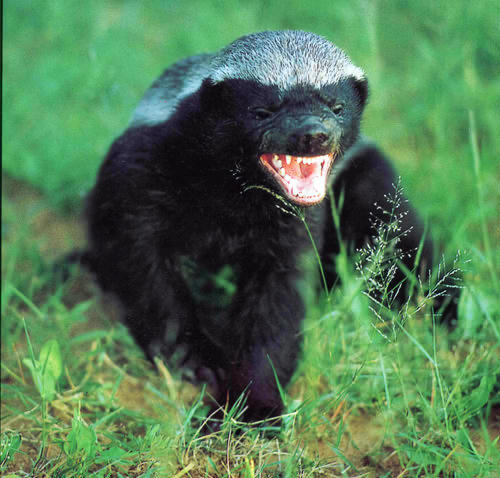
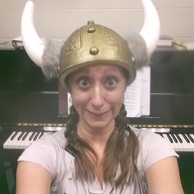
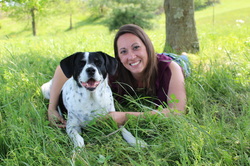
 RSS Feed
RSS Feed
